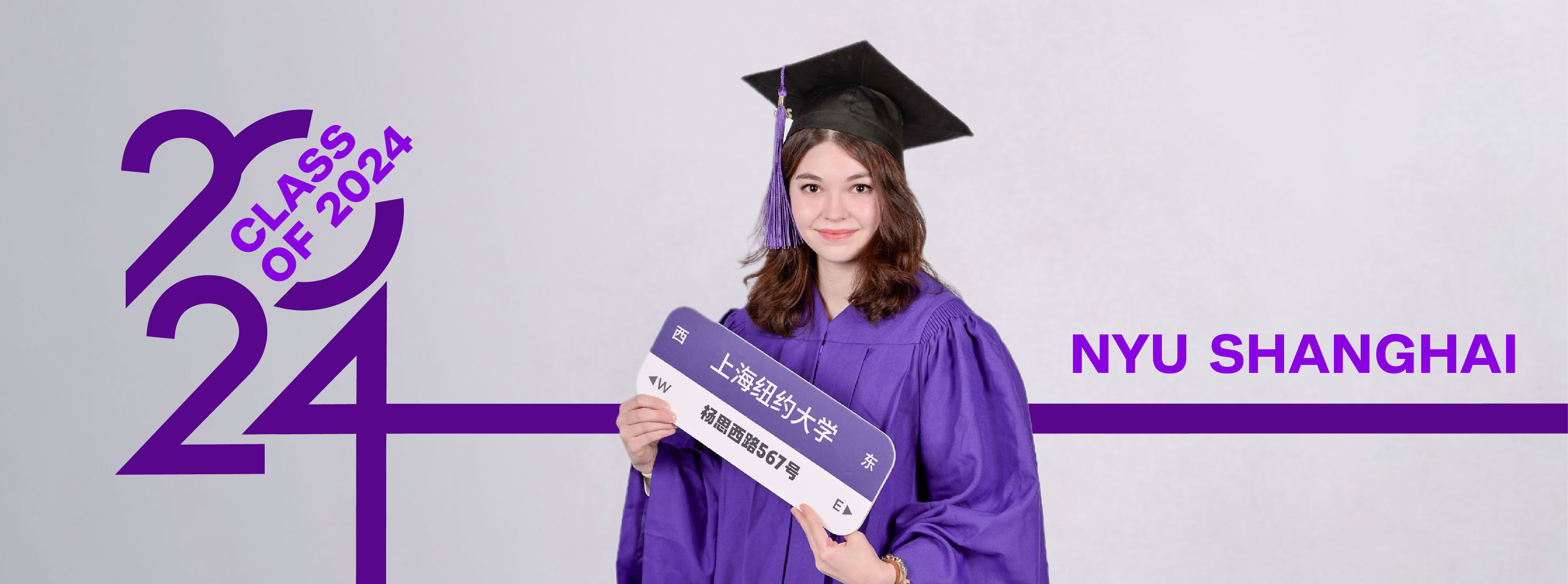
When Celia Forster ’24 was a middle school student, she decided to master Mandarin while exchanging letters with her pen pal from China (and yes, they’re still in touch). She enrolled in Chinese at her high school in Snohomish, Washington and has been studying the language since. This year she passed level five on the HSK Chinese proficiency exam.
Language has long held a fascination for Forster. It’s no surprise then, that she chose to attend university in China and minor in Chinese. “NYU Shanghai seemed like the perfect choice for me,” she said. “I've been able to study social science, psychology, and interactive media all through the lens of Chinese while taking Chinese classes.” In the fall, Forster will begin a masters degree program at Harvard Graduate School of Education’s Learning Design, Innovation, and Technology program.
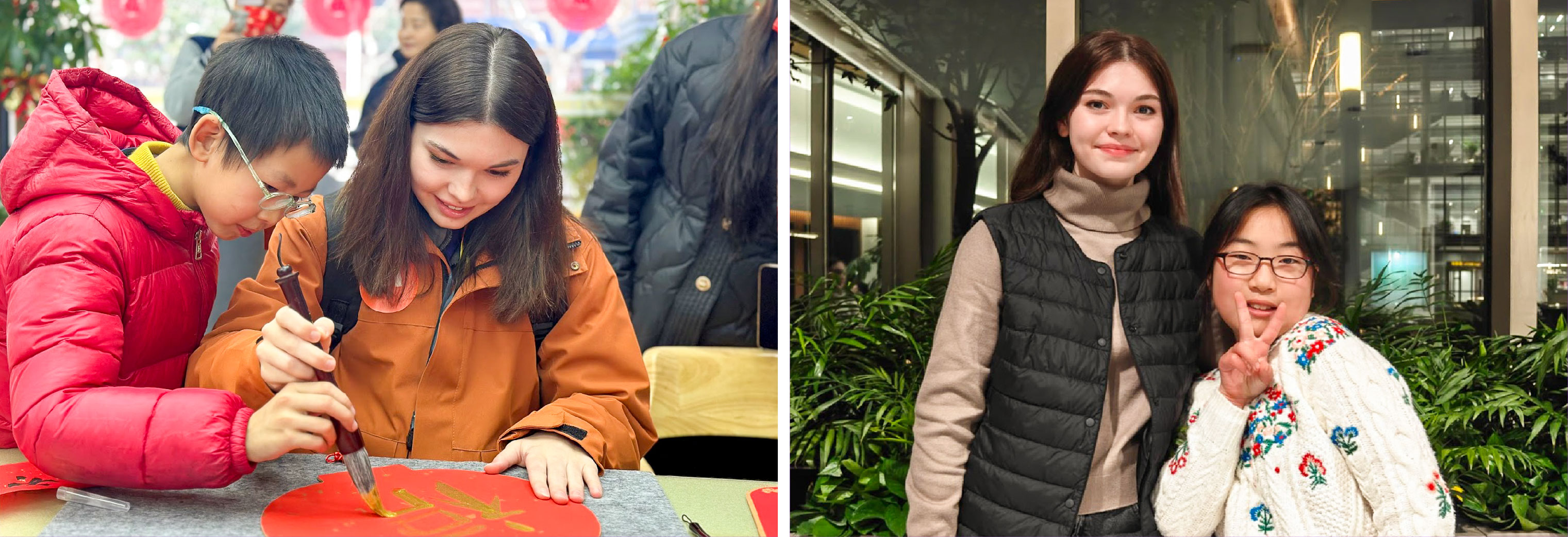
Left: Engaging with the local community and culture through Chinese calligraphy. Right: Celia exploring campus with her ‘little sister’ from NYU Shanghai’s Big Brother Big Sister program.
Forster made good use of opportunities to hone her Chinese skills through many outreach programs hosted by the Community Engaged Learning office. This year, Forster joined the Big Brothers Big Sisters program and was paired with a local youth from the migrant community. Every few weeks, they’d meet up for dinner and explore NYU Shanghai’s campus. “Even though we had an age gap, culture gap, and language differences, it was an opportunity for me to practice Chinese while understanding her experiences,” she says. “We still keep in contact today.”
But what left the biggest impact on Forster, she says, is being exposed to different viewpoints. “There have been times when I'm actually the only American in the classroom,” she recalls. “I hear many different perspectives that I wouldn't have got if I had stayed back in the US.”
Having a Chinese roommate, a requirement for all international first year students, was also helpful. “It’s the heart of cultural exchange,” she says. “You really experience the spirit of NYU Shanghai from the start.” Forster says she frequently runs into her former roommates on campus, as they all share the same major.
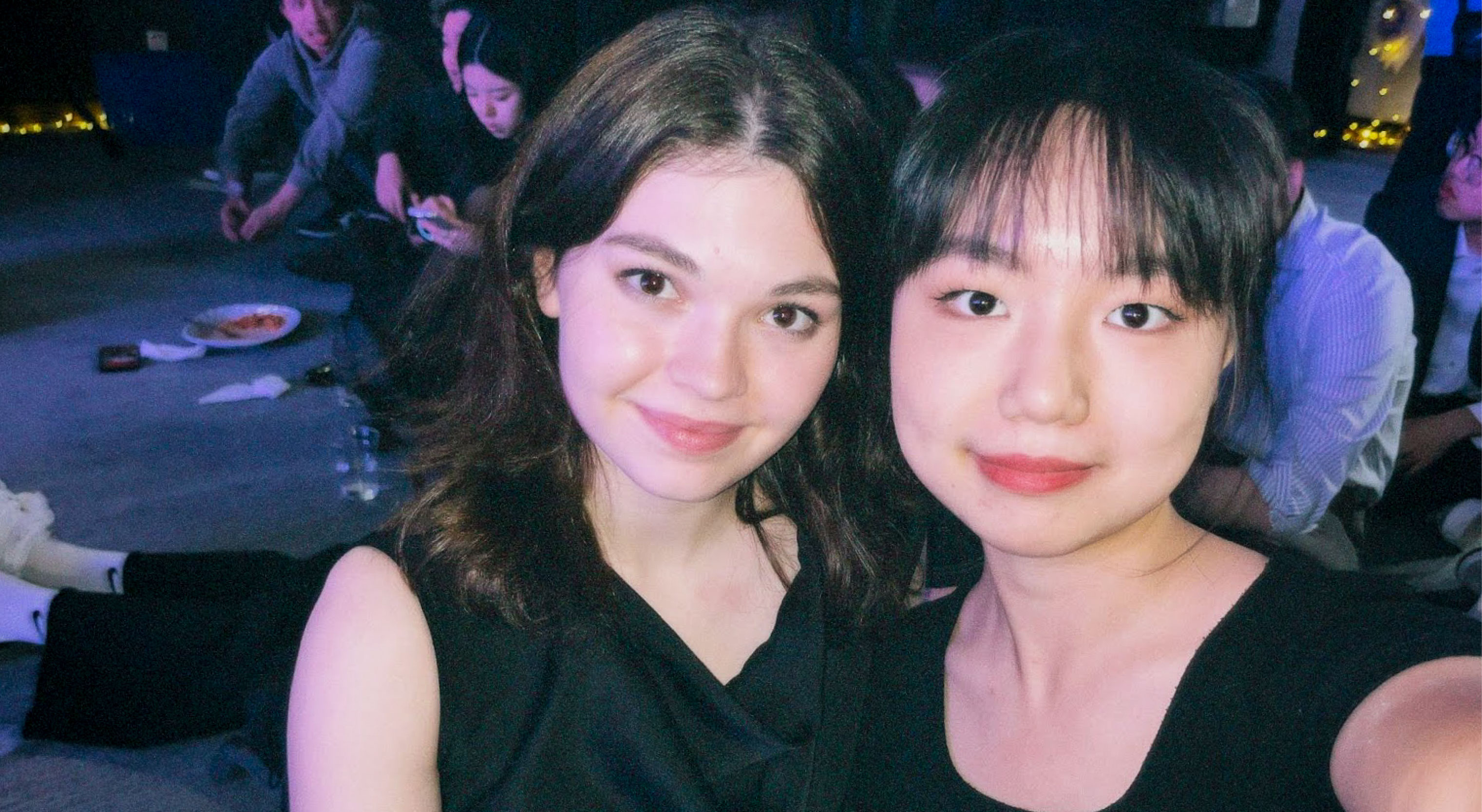
Celia and her sophomore year roommate Annie Lu ‘24 reconnecting at the 88 Days Countdown to Graduation event
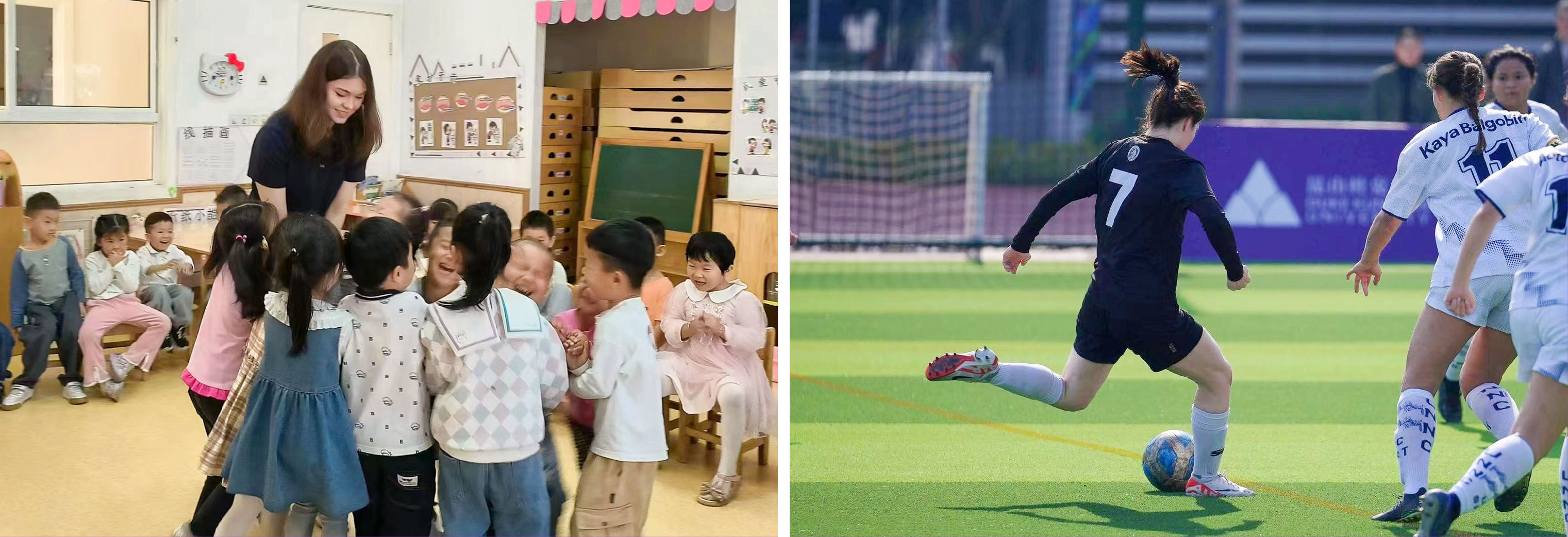
Left: Teaching kindergarten with Stepping Stones as part of a course. Right: Playing for NYU Shanghai’s women’s soccer team
For her majors in Interactive Media Arts and social science (psychology), Forster is completing two capstone projects that both delve into the popular phenomenon of informal digital learning communities in China (such as online self study rooms), a topic that combines her academic interests in psychology, Chinese language, and educational technology.
“I'm approaching it from this new media angle about what these study rooms mean in terms of the emerging media landscape in China,” she said. “But then I'm also doing a psychology experiment on how do these study rooms affect students' motivation and procrastination habits? Using Chinese is absolutely essential as a tool to be able to do this research and interview participants and really understand the topic from a more nuanced angle.”
For her social science capstone, Forster conducted an experiment with 30 Chinese students from East China Normal University (ECNU), inviting them to enter a Zoom-like online meeting room to study together and then observing whether they experience changes in their productivity. “People choose to opt into these spaces—it works for them, and they find a kind of relaxation through discipline,” she says. “Experiencing how that kind of academic system functions helped me understand culturally-embedded concepts a bit more.”
She’s also constructing a full-scale, usable study room installation with one-way mirrors that will be exhibited at the IMA End-of-Semester Show. The project is driven by one major question: Are people more productive when they know they’re being watched? Experimenting with an Arduino circuit microcontroller, she prototyped a keyboard that detects the user's hand movement, productivity, and focus. The project required intense physical labor. “It’s different from taking a test; it’s something that you can physically show for your work and it's very exciting.”
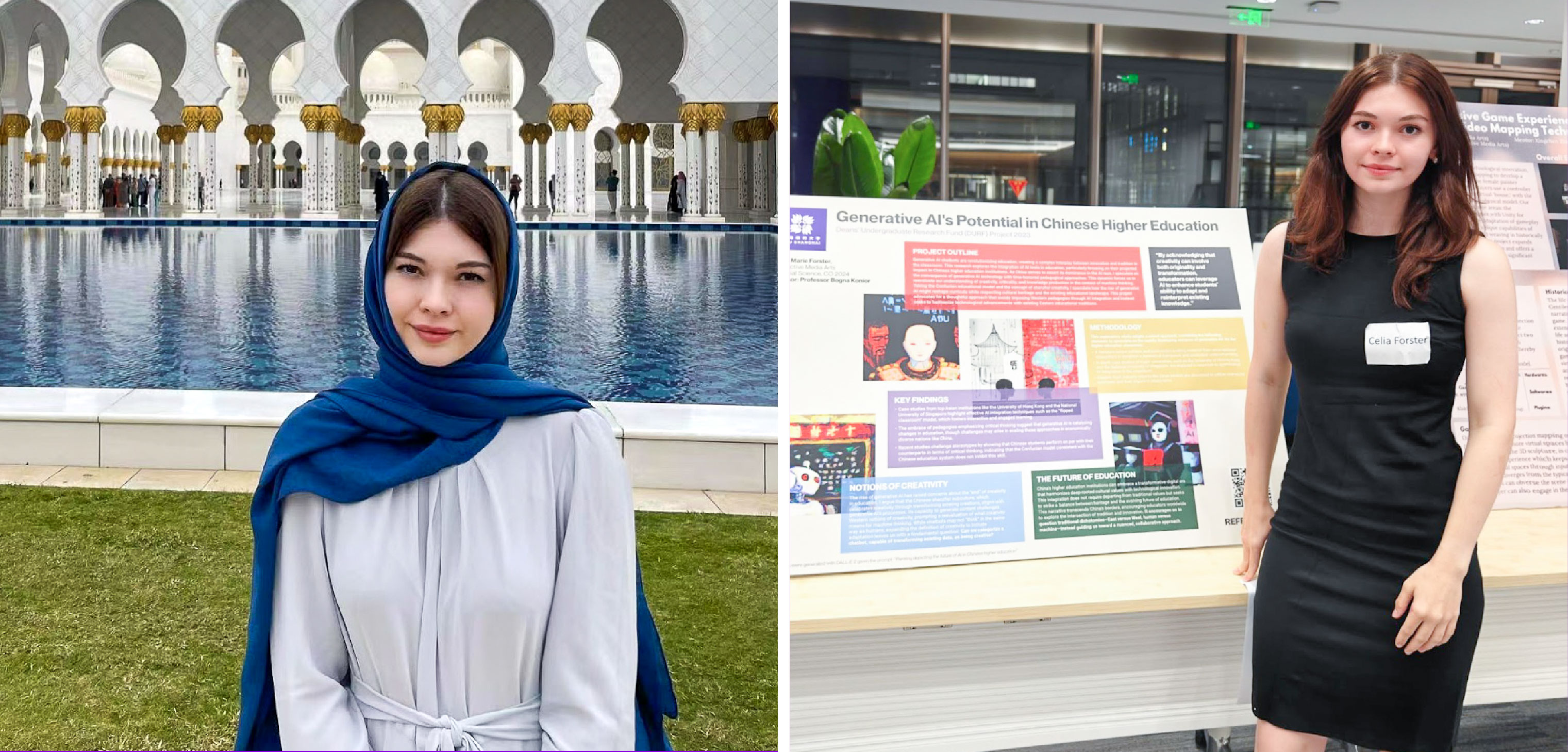
Left: During her study away at NYU Abu Dhabi. Right: Presenting at the Fall 2023 Undergraduate Research Symposium
Inspired by the ideas she encountered in a Future of Education class taught by NYU Abu Dhabi Professor of Political Science Nancy Gleason, Forster went on to complete a Dean’s Undergraduate Research Fund (DURF) project on generative AI and Chinese higher education, exploring how generative AI can be implemented in a culturally responsible way and as a tool to develop critical thinking skills.
“With AI entering the classroom, there's been debate about whether it’s taking away from critical thinking skills,” says Forster. “And there's this perception I feel in the West, that a lot of Chinese students are lacking critical thinking skills. I wanted to dig into that more.” After pouring over much research, Forster found that students from different linguistic backgrounds are not often presented with culturally responsive assessments. “If that evaluation is in English, you're testing the students more on language rather than their critical thinking capacity.”
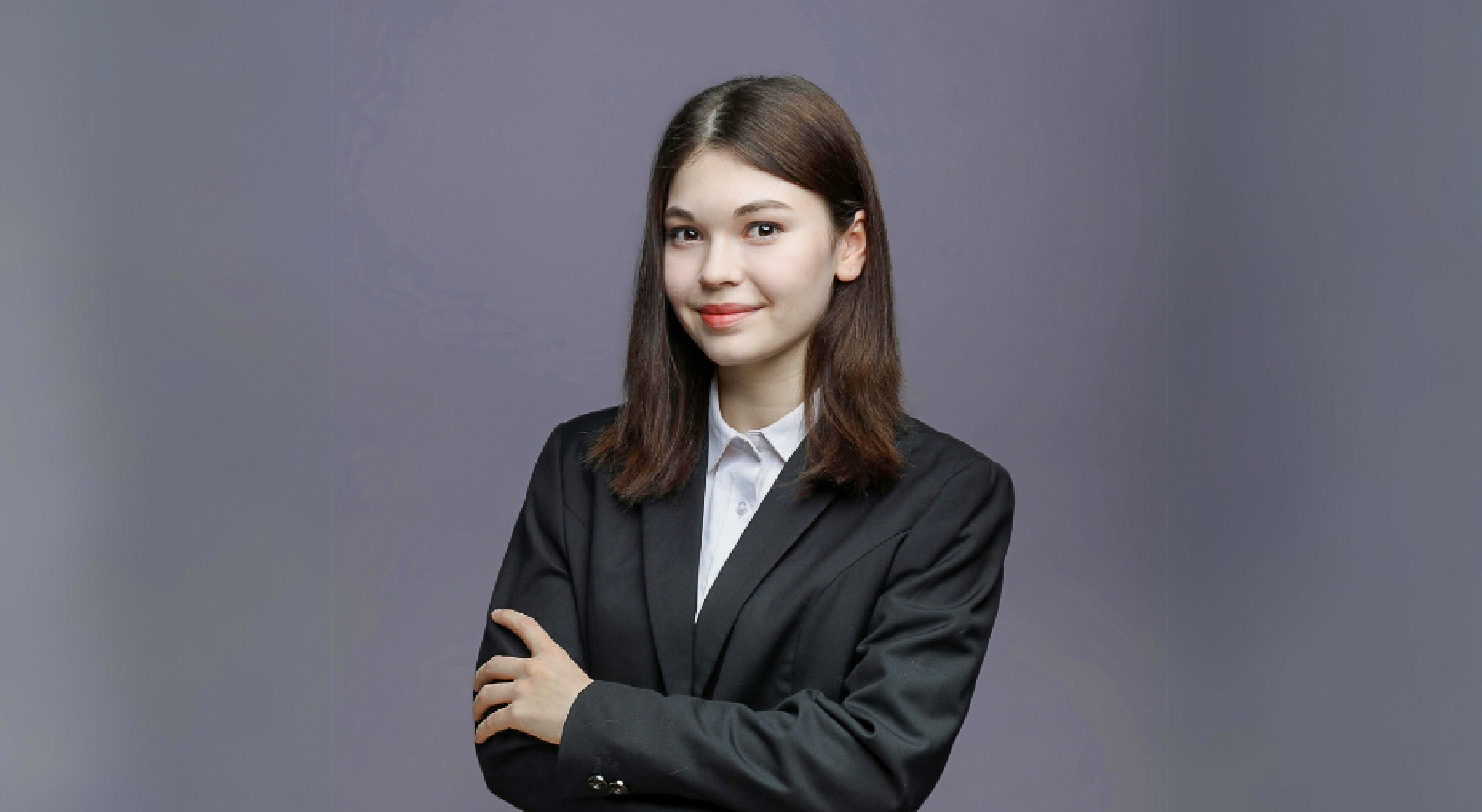
It’s that passion for language, education and technology that Forster will take with her to Harvard in the fall, where she will harness the skills to create inclusive learning materials and experiences to work in educational media and technology, instructional design, and curriculum development.
“I kind of became passionate about making sure assessments and curriculum are more responsive to students from different linguistic and educational backgrounds,” Forster says. “It's a very new and exciting topic that's changing every day and very relevant.”

